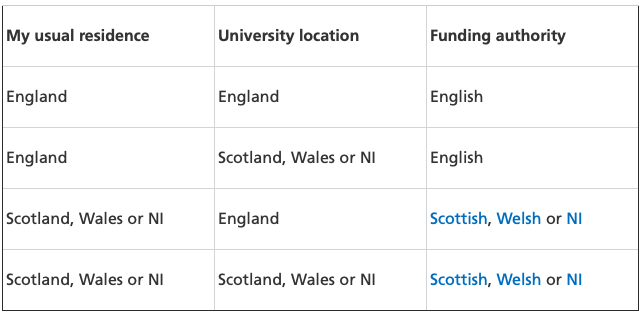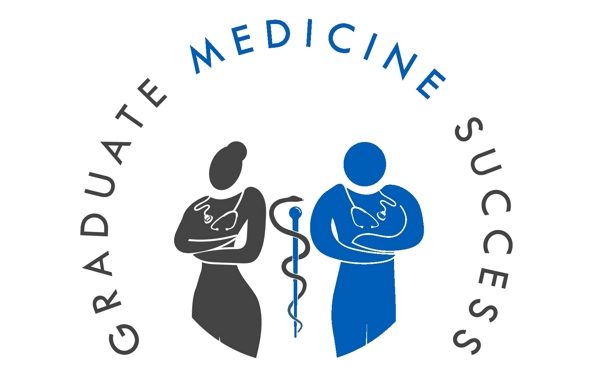
The GEM Financial Survival Guide (Graduate Entry Medicine funding)
Share with a friend!
This guide is going to be more detailed than a typical “how is Graduate Entry Medicine (GEM) funded” article. I’m very passionate about financial education and given that money troubles can impact on stress levels and wellbeing, I believe it’s very important that debt as well as income can be talked about openly without stigma. Including in the medical community.
For graduates money can be an especially big worry because there is less support to get you through a medical degree than if you are a school leaver. If you get onto a 4-year Graduate Entry Medicine course there may be, however, substantially more funding available to you than if you opt for a standard entry 5- or 6-year course.
Having said that, there are still holes in funding you should be aware of.
So, in this blog post I will explain how government funding for Graduate Entry Medicine works. But I will also share ideas of how else you can look to fund your studies. Plus, I’ll share some financial survival tips I’ve picked up from doing two previous degrees in notoriously expensive London.
Disclaimer: I’m not a certified financial adviser and so the below should not be considered financial advice. What is written here is merely for information and educational purposes. For advice on your specific circumstances consider seeking help from your relevant funding agency, medical school’s student services and/or finance support team, or an independent financial advisor.
Contents
Click the links to jump to each section
- Funding breakdown by country for GEM
- Standard entry Medicine for grads
- Where to apply for a student loan and NHS bursary
- Scholarships, bursaries and other sources of funding
- Military sponsorship (cadetships)
- Money SAVING tips
- Money MAKING tips
- Further reading
- Resources to boost your money IQ for life
Quick glossary
Tuition fees = paid to your university to pay for your teaching.
Living costs = costs other than your course fees e.g. rent, groceries, travel.
Loan = money sent to you that at some point you’re expected to pay back usually with interest.
Interest = extra money you pay on top of what you borrowed when you receive a loan (as a result you will owe more than you borrowed).
Maintenance loan = loan paid to you for the purpose of covering your living costs.
Grant or bursary = money given to you that you won’t ever need to pay back.
Means tested = depends on your “means” i.e. household income.
Non-means tested = does not depend on your “means” i.e. household income.
FUNDING BREAKDOWN BY COUNTRY FOR GEM

If you’re from England
During your degree you can receive help from Student Finance England and the NHS Business Services Authority. Make sure to double check the information below with them so you can be confident you have information that’s correct and relevant to you.
Use this calculator for an estimation of how much you could get from Student Finance.
Year 1
You pay: ~ £3,500 towards tuition fees.
NHS pays: Not available
Student Finance England pays: Exactly how much could depend on your location and household income.
Student Finance England (SFE) will cover the rest of the tuition fees with a loan unless you’re happy and able to pay the full ~£9,000. This is regardless of household income i.e. it is non-means tested.
SFE will also provide a maintenance loan of ~ £4000 minimum towards your living costs (if living away from home) or ~ £3400 minimum (if living at home). You could be eligible for more than this, but it depends on your household income.
If you’re not from England funding could differ significantly so, please double check with your relevant funding agency (all listed further down).
Real life example:
To provide an example, I’m at a London-based school and in my first year I paid ~ £3,500 towards tuition fees. The rest of my tuition fees were covered by SFE.
I also received a £12,500 maintenance loan from SFE to help with my living costs (rent, groceries, bills, commuting etc).
Working part-time as a private tutor and being lucky enough to have some help from my parents allowed me to both pay the £3,500 towards my tuition fees and cover any living costs that went beyond the £12.5k maintenance loan. And I did find my living costs went slightly beyond this.
Years 2 – 4
Don’t be fooled into thinking that just because you no longer need to pay £3,500 towards your tuition fees (now covered by the NHS) that you won’t need to find any money. This is because even though the NHS will be sending you money from now on, you’re going to find that SFE will be sending you LESS.
You pay: Exactly how much will vary depending on your circumstances. I personally had to cover a hole in funding of £2700 in 2nd year for living costs. You may have more or less of a shortfall to cover than I did.
NHS pays: ~ £3,700 towards your tuition fees and at least £1,000 (non-means tested grant) towards living costs. How much more you could get depends on location, household income and/or if you could be considered “independent” as opposed to dependent on your parents. You don’t need to pay this back.
Student Finance England pays: They’ll cover the rest of your tuition fees with a loan. Your maintenance loan will be LESS than it was in 1st year. Exactly how much maintenance loan you will get for living costs depends on your location and household income.
Real life example:
So how did things actually change for me financially in year 2?
My tuition fees were fully covered by SFE and the NHS combined. All good so far.
From SFE I received a maintenance loan of £3300 But in my first year I received £12,500… That’s £9,200 less compared to my first year!
Thankfully the NHS bursary helped me to plug some of that £9,200 hole. They sent me £6500 total over my second year. So ultimately, I covered £2700 myself.
I received more than £1,000 from the NHS by proving that I was eligible to be considered “independent”. I did this by showing that I had supported myself financially for at least 3 years before beginning my course. My proof was letters from previous landlords confirming that I paid for my own rent as well as payslips. Payslips alone weren’t enough because – and this reasoning is understandable to be fair – receiving money isn’t proof that I actually supported myself with it.
So, despite the NHS covering the £3,500 odd I had previously covered myself for tuition fees, because of the reduction in maintenance loan from SFE, I still found myself needing £2700 to cover ALL my expenses. Again, part-time work as a tutor and help from my parents allowed me to afford this.
Remember, if you’re not from England funding could differ significantly so, please double check with your relevant funding agency (all listed further down).
If you’re from Wales
During your degree you can receive help from Student Finance Wales and NHS Student Awards Services. Make sure to double check the information below with them so you can be confident you have information that’s correct and relevant to you.
Year 1
You pay: ~ £3,500 towards tuition fees.
NHS pays: Not available
Student Finance Wales pays: Exactly how much could depend on your household income. You will receive a combined loan and grant.
Years 2-4
You pay: Exactly how much will vary depending on your circumstances.
NHS pays: ~£3,500 towards tuition fees. You will also receive £1,000 minimum towards living costs. You may receive more depending on your location and household income.
Student Finance Wales pays: The rest of your tuition fees. You can also apply for a maintenance loan.
If you’re from Scotland
During your degree you can receive help from Student Awards Agency Scotland (SAAS). Make sure to double check the information below with them so you can be confident you have information that’s correct and relevant to you.
Year 1
You pay: Full cost of the tuition fees.
NHS pays: Not available
SAAS pays: Exactly how much could depend on your location and household income.
Years 2-4
You pay: Full cost of tuition fees.
NHS pays: Not available – unlike for England and Wales no bursary funding is available via the NHS. HOWEVER you can receive more support from SAAS than a student from England or Wales can from Student Finance England or Wales.
SAAS pays: Exactly how much could depend on your location and household income.
If you’re from Northern Ireland
During your degree you can receive help from Student Finance Northern Ireland. Make sure to double check the information below with them so you can be confident you have information that’s correct and relevant to you.
Year 1
You pay: Full cost of the tuition fees.
NHS pays: Not available
Student Finance NI pays: Exactly how much could depend on your location and household income.
Years 2-4
You pay: Full cost of the tuition fees.
NHS pays: Not available – unlike for England and Wales no bursary funding is available via the NHS. HOWEVER you can receive more support from Student Finance NI than a student from England or Wales can from Student Finance England or Wales.
Student Finance NI pays: Exactly how much could depend on your location and household income.
Standard entry Medicine for grads
In this blog post I’m focusing on GEM but if you’re a grad considering standard entry Medicine, here’s some of the key things to know:
- Years 1 to 4: Bad news is you will need to self-fund your tuition fees. Good news is you will be able to apply for a maintenance loan.
- Years 5 to 6: Your tuition fees will be paid for by either the NHS (if from England and Wales) or SAAS (if from Scotland). You can also apply for a maintenance loan from Student Finance/SAAS and a NHS bursary for living costs provided you’re eligible.
Where to apply for your NHS bursary and Student Finance loan
Which funding agency you should apply to will depend on whether you’re from England, Wales, Scotland or Northern Ireland.
Student Finance England: https://logon.slc.co.uk/cas/login
Student Finance Wales: https://www.studentfinancewales.co.uk
Student Awards Agency Scotland (SAAS): https://www.saas.gov.uk
Student Finance Northern Ireland: http://studentfinanceni.co.uk/
If you’re from England, apply for your NHS bursary via the Bursary Online Support System (BOSS): https://www.nhsbsa.nhs.uk/nhs-bursary-students/how-apply
If you’re from Wales, apply for your NHS bursary via NHS Student Awards Services: https://nwssp.nhs.wales/ourservices/student-awards-services/
Some tips
- Apply as soon as applications are open to avoid any delays. The closer to the start of term you get, the higher chance of delays because more and more people will be applying.
- For both Student Finance/SAAS and NHS bursaries you’ll want to gather the necessary evidence and have it ready as early as possible. I ended up in a situation where NHS BSA needed proof that I had supported myself financially for 3 years. I sent 3 lots of evidence and it needed it sent special delivery each time. The result was a long, drawn out process that cost a lot of money in terms of postage.
- Get on the phone! Sometimes it’s easier for everyone to just have a conversation on the phone. Misunderstandings are less likely, and problems seem to get resolved quicker, in my experience.
Scholarships, bursaries and other sources of funding
Scholarships and bursaries at your med school
There are a range of scholarships around with various eligibility criteria. Most medical schools have their own scholarships and bursaries.
Whether you are eligible will depend on your age, background, household income and other factors. It’s important to double check what’s available at YOUR medical school.
Your personal tutor and/or students’ union should be able to signpost you to the correct people to speak to. If not, reach out to the finance or student support services at your uni.
Examples:
- Nottingham’s Franks (£2,500) and Cameron Gifford Scholarships (£500)
- Oxford’s Oxford Bursary (£500-3,200)
- St George’s Opportunity Fund Grant
- Kings College London’s King’s Living Bursary
Other bursaries
Disabled Students’ Allowance is for those with mental health problems, long term health issues, learning difficulties or any other disability.
Adult Dependants’ Grant is for those who are taking care of an adult who depend on them financially.
Childcare Grant is for those with children under 15 years old. Or who have children under 17 years old who have special educational needs.
Child tax credit, child benefit, Parents’ Learning Allowance and NHS bursary childcare allowance all also support people with children.
Sir Richard Stapley Educational Trust provides grants for those over 24.
Professional Aids Council could provide help if you’re in a clinical year.
Various charitable trusts may also be worth applying to.
Hardship funding
Your medical school will try to support you if you run into financial trouble. The first person you may want to talk to is your personal tutor who can provide advice and advocate for you.
Alternatively, you could reach out to your students’ union for advice.
BMA Charities offers grants to both doctors and medical students in financial difficulty. Their BMA Medical Educational Trust has grants for students taking Medicine as a second degree. To see if you’re eligible, take their eligibility questionnaire.
NHS hardship grant offers between £100 – £3,000 for eligible students in genuine hardship.
The Royal Medical Benovalent Fund has a list even more sources of hardship funding.
Military sponsorship (cadetships)
In return for several years’ commitment to the military post-graduation (exactly how long varies between the services) you can receive full funding for a proportion of your medical degree plus a salary or bursary while you’re still a student. Once you graduate and are in a service, the pay is good and so are many of the benefits.
You can’t apply for any of them until you’re already in medical school.
Due to the huge commitment you’d be signing up for in return for sponsorship, I’d say it’s worth checking you’d be happy in the military. None offer sponsorship for your first year of medical school, so it’s a good time to do one of the following…
- For a flavour of the Army, sign up to your local University Officer’s Training Corps (UOTC).
- If you’re considering the Royal Navy, get a taster at a University Royal Naval Unity (URNU).
- Get an idea of Royal Air Force life by joining a University Air Squadron (UAS).
I got part-way through the Royal Navy cadetship application process before realising that military life is not for me. I figured this out when I joined an URNU. That doesn’t mean to say military life isn’t suited to you though! I’m very happy to provide (free of course) advice to anyone looking to apply for the Royal Navy cadetship. Just drop me an email.
Money saving tips
Student discounts
Make sure you’re getting all the student discounts you can. I’m personally a fan of UniDays and regularly use the app to check for discounts.
Back in the day (early 2010s – showing my age) it was all about the NUS card. UniDays seems to have overtaken the NUS card in terms of popularity, but it’s still a thing. It’s been renamed TOTUM.
Student bank accounts
Student bank accounts come with the option of interest free overdrafts plus other benefits. For example, a free rail pass.
A few things to keep in mind:
- The bank will run a credit check when you apply for a student bank account. Too many credit checks in a short period of time can have a bad effect your credit score.
- The overdrafts don’t stay interest free forever. At some point after graduation you will need to pay off the overdraft if you don’t want to be charged interest.
- It’s tempting to dip into interest free overdrafts, but they’re best used as back up money.
Travel smart tips
- Live within walking or cycling distance of your medical school so that you can save money on your commute.
- Get reimbursed for travel to and from clinical placements. GEM students can get this via the NHS bursary provided the costs are more than they would be normally travelling to/from uni. To do this, keep records and/or receipts of your journeys and complete the relevant form. Check out the NHS BSA website for more information (click on “Practice Placement Expenses”).
- If you’re in London, make sure your Oyster card or contactless bank cards are registered on the TFL website. This will allow you to login and download a record of all the journeys (and associated costs) you’ve done on public transport. Note, however, that if you take a non-TFL train or other mode of transport you will need to hold onto any receipts because these journeys won’t show up on your TFL account.
No need to pay for brand new textbooks
Textbooks can cost a lot of money. Save money by borrowing library books instead.
You could also borrow books off friends or buy second-hand books via Facebook Marketplace, Facebook groups or Amazon.
Budget
Some bank account apps have budgeting tools. These allow you to plan in advance how much you want to spend on groceries, rent, travel etc. each month.
What’s great about these apps is that they will hold you accountable by tracking your spending and alerting you if you overspend in any particular category.
Banks that offer these kinds of tools in their apps include Monzo and Starling.
If you don’t have a bank that offers this, you could use one of these third party budgeting apps. If you have more than one bank account, they can connect to all of them at once via open banking technology. Completely free! I’ve personally used Yolt and Emma in the past.
You could also be old school use an Excel sheet to track your finances. I use Save the Student’s budgeting spreadsheet.
Food shopping tips
- Shop at budget supermarkets such as Lidl or Aldi. Your money will usually go further.
- Frozen food is often better value for money than non-frozen food.
- For healthy yet cheap recipe ideas, my go-to is Lean Student Chef (Rob Eades). Check out his instagram and website.
- Cook a tonne of food (AKA bulk cook) once a week. Either freeze the leftovers or box them up in the fridge so you’ve got a bunch of meals ready to heat up in the microwave anytime. Good things to bulk cook include salads, spaghetti bolognaise, chilli con carne and curries.
- And whatever you do, try not to food shop when you’re hungry!
Rent smart tips
- Fancy free accommodation? Apply for a student halls resident / pastoral role. These sorts of jobs allow you to live in student halls for free. Duties tend to include welcoming new students to halls, dealing with complaints about noise, making sure no wild parties are going on and looking out for the wellbeing of residents.
- Live in a flat share or house share instead of a studio. It might be annoying sharing a bathroom sometimes. Especially with people you don’t know. But it will save you money.
- Student halls aren’t necessarily the cheapest option! Private halls (run by independent companies) can be especially pricey. Sometimes the best value rooms are flat shares and house shares rented by independent landlords.
- Living close to uni will minimise (or obliterate) your travel costs. I can’t speak for elsewhere but in London hopping on the underground everyday can drain your pockets fast – when you’re living on a student budget anyway.
- Bills included rentals can be a great find. Especially if gas and electricity are included because in winter their usage goes way up.
- Live at home! (This may result in reduced financial support from your home nation funding agency and/or NHS, however.)
- Shop around. An extra £30 per month for a bigger room may not seem like a big deal at first glance but rent adds up quickly because it’s such a large expense. If you’re in London, in my experience it’s possible to get a decent enough room for £500-650 per month including bills depending on the borough you’re in.
Buy electronics second hand
I personally use CEX a lot, especially for getting new Apple products. You can take in your old devices, DVDs etc. and receive a discount on future purchases in exchange.
You can also trade your stuff for cash although you get less than if you took a voucher / discount on your next purchase.
CEX have stores all over the place. They also have a website.
Money making tips
Prizes
Build your medical CV and bag potentially £100s at the same time by going for essay and other academic prizes.
Your uni may provide prizes of its own, for instance if you’ve come top of your year in OSCEs.
Many prizes are also organised by external organisations such as the Royal Society of Medicine, various Royal Colleges and others.
There are also research projects you can undertake and receive money for.
Part-time, flexible jobs
- Part-time jobs working for unis / medical schools tend to be flexible and decently paid. At my medical school you can work as an anatomy demonstrator (teaching anatomy in the dissection room), as a clinical skills tutor (teaching clinical skills in preparation for OSCEs), in the students’ union shop or bar, or as a student ambassador (showing new students around).
- Private tutoring is a well-paid and flexible part-time earning option for many students. As both a graduate and medical student you have credentials that are likely to attract students. Bonus: because you are your own boss you can arrange your work around your studies! In London you can easily start out on £20-25 per hour for primary and secondary school age teaching. Elsewhere you’re probably looking at starting on £15 per hour. I’ve been private tutoring for 4 years. For advice getting started as a private tutor feel free to drop me a line.
- Bank Health Care Assistant (HCA) work is a great option if you’ve previously worked as a HCA. Sign up via the NHS Professionals website.
- Babysitting or nannying can also be a fantastic part-time earner. I’ve seen babysitting jobs advertised on the job boards of various unis.
- Work freelance via Fiverr and similar websites. If you have a creative skill such as graphic design, web design, writing or music making this might be worth a try.
- Take surveys for money. This isn’t something I’ve done myself, but I’ve seen a fair few people recommend it. You’re unlikely to get a lot of money, mind you.
Sell your unwanted stuff
Sell your stuff second hand via noticeboards at uni, Facebook Marketplace, Gumtree, Facebook groups and the various other websites and apps that are around these days.
I’ve made £100s selling books, electronics and clothes I didn’t want anymore.
Paid clinical trials
It’s possible to sign up for clinical trials and get paid for your trouble. Pay varies depending on the study.
For more info check out Save the Student’s guide on this.
I’m not sure how I feel ethically about this. But I’ve decided to mention it so people are aware it’s an option.
Blogging, YouTube and social media
It is becoming increasingly popular for medical students to start their own YouTube channels, blogs and influencer-style social media accounts. People have various reasons for starting these, but some do this in the hope of earning money.
However, this is NOT a quick or reliable way to earn money. It takes time to build enough of a following to generate any money through ad revenue or attract the attention of potential sponsors.
So, I personally think you should only do it if you’d be okay with never earning any money from it.
Further reading:
- BMA medical student finance guide
- Royal Medical Benevolent Fund
- Save the Student’s article on grants, bursaries and scholarships
- Medical Schools Council
Resources to boost your money IQ for life:
- Save the Student: Blog empowering students to make the most out of their money. They also share deals and discounts.
- Money Saving Expert: Website dedicated to helping others understand money. They also share deals via their newsletter e.g. internet provider discounts. They have written some very enlightening articles on how student loans work!
- Vestpod: An organisation seeking to provide supportive, fun and practical financial education. I’ve attended a couple of their workshops and found them really useful.
-—
Hope that helps! Sign up to my mailing list to get more tips in your email inbox.
Share your own finance tips with other readers below by leaving a comment!
Have some feedback on this article? Did I make an error? Please contact me via the contact page or leave a comment below.
You might also be interested in my article FREE Medicine Personal Statement Reviews: Where to get free quality feedback.
—-








Just wanted to say thank you so much for this extremely helpful article! I’m applying for graduate entry medicine this year and have found navigating the financial support pretty complex, with lots of contradicting advice. It’s really stressful as I can’t rely on my parents for finance so I need to be absolutely sure I’d be able to afford it before I apply. This article has made everything much more clear!
Hi Anna, glad you found this article helpful. Good luck 🙂
This is an excellent article. Thank you so much for posting!
I wanted to confirm something: did the NHS there give you £9,200 in years 2-4? £3,500 toward la fees and £6,500 towards living expenses?
Hi Elizabeth, glad you found it helpful! NHS sent £3700 to my uni for tuition fees, and sent ~ £6500 to me for living costs. Keep in mind that the amount you get will be affected by whether you’re in London or not and the length of the academic year.
Thanks Eleanor!
Hi Eleanor! Thank you so much for this article, it was so much clearer than most of the others I’ve been trying to decipher.
I just wanted to clarify, did you receive a maintenance loan for your first degree too? Just unsure if I’m still eligible to claim again this time around due to contradicting things I have read previously.
Hi Hannah, glad to read you’ve found it helpful. Sorry for the huge delay replying. Yes I did receive a maintenance loan for my first degree.